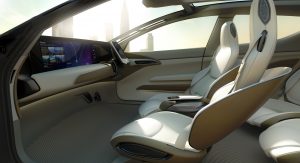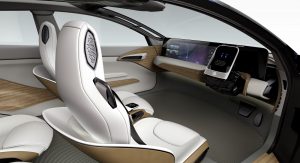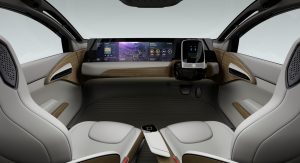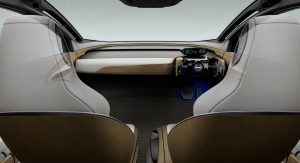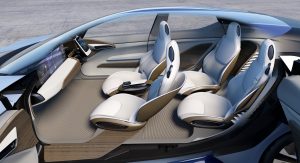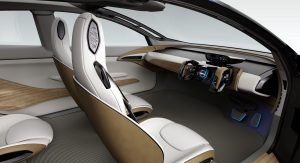Owned in part by Peugeot & Citroen, Faurecia, one of the world’s largest suppliers of automotive seats and interiors, is looking to create a more flexible cockpit.
Fully autonomous cars are expected on the roads within three to five years, and while interiors might not change right away, suppliers such as Faurecia need to anticipate future trends and get out ahead of any breakthroughs.
What they’re doing now is envisioning “new behaviors, when vehicles are no longer designed solely for driving,” said Matt Benson, head of ventures and advanced innovation for the company. “One of our challenges is to create more flexibility in the cockpit of the future – make it more intuitive and predictive.”
Faurecia is also working on an “active wellness” seat, featuring biometric sensors and predictive analytics, measuring and responding to occupant stress, drowsiness and other symptoms, explained Rob Huber, VP of innovations and ventures.
According to Reuters, the company is also trying to find ways to blend voice recognition and gesture controls with advanced lighting, audio and control systems. On top of that, since self-driving cars and on-demand ride-sharing fleets will likely result in increased daily use of vehicles, Faurecia is looking at cabin “cleanability” as well.
“Some of the things that people said they expect to do in fully autonomous and shared vehicles are crazy,” added Benson. “Freed from the task of driving, people say they would play the guitar, do yoga, cardio exercise or knit.”
Note: Nissan IDS Concept pictured




